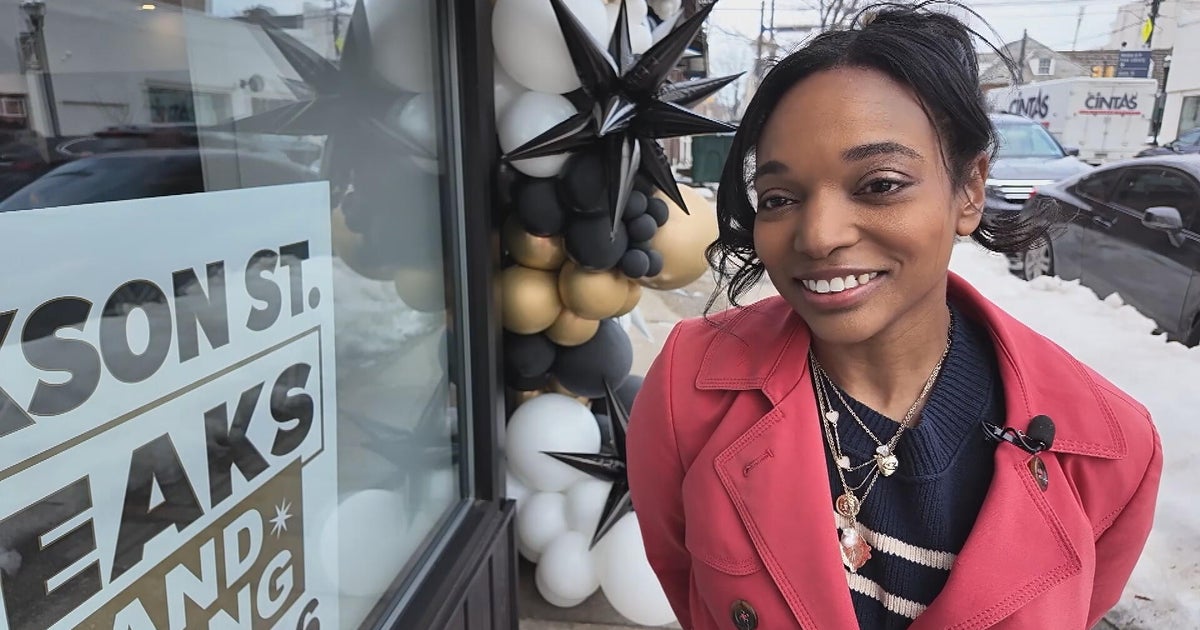Kamala Harris is on the cover of Elle magazine's November issue
Democratic Vice Presidential nominee Senator Kamala Harris is the former attorney general of California. She was the second Black woman to be elected to the U.S. Senate, and this year became the first Black vice presidential nominee. Now, she's also the cover star of a popular fashion magazine, gracing the cover of Elle's November issue.
In her wide-ranging interview with the magazine, Harris, the child of immigrants from India and Jamaica, remembered the first civil rights march she attended — in a stroller, from which she fell, getting separated from her family. "My mother tells the story about how I'm fussing," Harris told Ashley C. Ford for Elle magazine. "And she's like, 'Baby, what do you want? What do you need?' And I just looked at her and I said, 'Fweedom.'"
When Ford asked Harris what justice means to her, she said: "It's about freedom, it's about equality, it's about dignity."
"When you achieve equality, and freedom, and fairness, it's not because I grant it to you. It's because you fought for it because it is your right," Harris continued. "This is not about benevolence or charity; it is about every human being's God-given right. What do we collectively do to fight for that? That's what justice represents to me — it's about empowerment of the people."
Ford said Harris, who was raised by two civil rights activists, brings up the word "dignity" and the idea of "the people" often. "Unity is when everyone is respected and has an equal voice," Harris said. "We have to be very clear-eyed about what we mean, and that what we mean is not about a Hallmark card."
Harris also addressed racial justice and criminal justice reforms in her Elle interview. "What I hope and pray is that we can get to a point where, through what are undoubtedly difficult conversations, we confront the real history of America," she said. "Doing it in a way that is motivated by love, but also is fully honest."
The 55-year-old, who is also the first South Asian American nominee on a presidential ticket, said her motivation "comes from believing in what can be unburdened by what has been."
Harris also pointed to Senator John Lewis, who died earlier this year, as an example, saying he participated in a march from Selma to Montgomery in 1965 "because he really believed in what could be."
"It will often feel like [we are only] against something, but the motivation that carries us through, with any longevity, is knowing what we're fighting for."
Harris reflected on the night in 2016 that she became the second Black woman elected to the U.S. Senate. "In every one of my elections, part of our routine is we do a small friends-and-family dinner before we go to the campaign night celebration," she said.
That night was also the culmination of 2016 presidential election, and Harris said when it looked like then-candidate Donald Trump was about to win, her 7-year-old godson, Alexander, came up to her crying, saying: "Auntie Kamala, they're not going to let that man win, are they?"
Harris, who has two stepchildren, said she held her godson and felt that she "needed to protect this child."
"I had one way, in my mind, I thought the evening would go. And then there was the way it turned out. And so by the time I took the stage, I had ripped up my notes, and all I had was Alexander in my heart. And I took the podium and I said, 'I intend to fight. I intend to fight.'"



